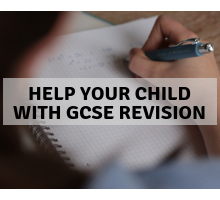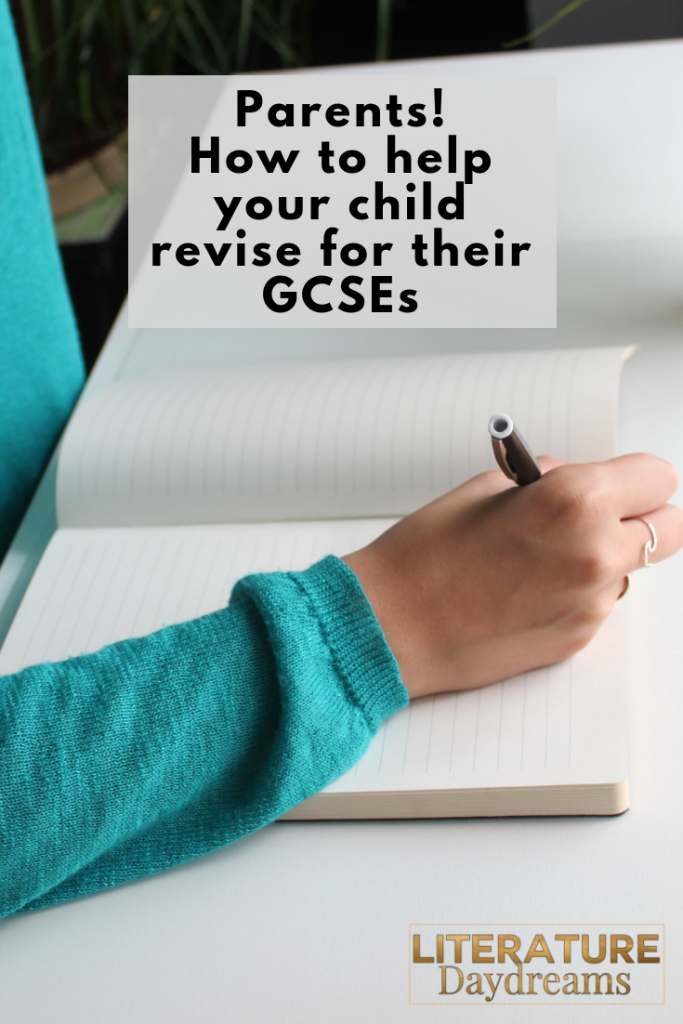How can I help my child revise for GCSEs?

What are the best ways to revise for GCSEs? How many hours should a child spend revising? When should they start? What can I do to help them at home?
Parents ask me this question a lot. They are keen to help their son or daughter at home and ensure they are ready for their GCSEs. I have experienced GCSEs both as a parent and (of course) as a teacher. It’s time to get the lowdown on GCSE revision.
So here is my honest advice on how you can support your child through their GCSEs:
Step 1: know your child
This sounds silly, I get it. The key here is to know how they work, how long they can work for, and when they work at their best. Most children will create a revision timetable that is unrealistic. They will put down 2 hours and label it ‘science’, without ever considering that they may not be able to (or even want to) work for that long.
By knowing ‘how your child works’ you can begin to encourage them to divide their revision up into realistic chunks. Would they prefer to spend 30 mins on one topic? Or would they be better completing 3 x 10 mins on 3 different topics?
How do you find this out? Well, it’s going to take some old fashioned detective work.
- Keep an eye on them when they are meant to be working.
- How long do they keep going before they get distracted?
- Do they stick at one topic for a long time?
- Do they listen to music? Does it seem to help?
- Do they keep checking their phones?
- Is distraction a problem?
- How focussed are they (really)?
Consider social media / website blocking apps. You can find a great article about them here “10 Apps that block distractions”.

Parents! Tackle GCSE stress with my weekly tips and advice email
In this weekly email, you will receive 2 revision ideas. One for English Language and one for English Literature. As well as other tips and advice to help your teenager make the most of their revision time!

Step 2: know the difference between ‘getting ready to revise’ and ‘actually revising’
Many students mistake these two activities. They think that making lots of revision resources, flicking through their textbook or classwork book, or watching YouTube revision videos is actually revising. To a limited extent, it is. However, there is a distinct difference: getting ready to revise and then actually knuckling down and doing the learning.
Once students have a clear idea of what they need to learn. They actually have to learn it.
Step 3: how do they best memorise facts?
There is no getting away from that the fact that GCSEs require children to know a lot of facts. Gone are the days when a bit of cramming the night before and some good luck will result in a good grade. So your son or daughter will have to memorise a lot of facts, for every subject they are studying.
So what actually is revising?
- Answer questions under test conditions
- Being quizzed by someone (a parent, friend)
- Instant recall (of facts, dates, information)
- Literally repeating them over and over!
You can help them work out the best way to do this. There are a few options:
Option 1: flashcards
Create them at home or online. I prefer the physical ones made from postcard-sized card. You can get ruled A5 ones like this*:
Or smaller ring bound ones like this*:
Anyone can test your son and daughter once the flashcards are created. It is also really easy to use them for actual exam questions. You simply write a question on one side and then write the answer on the other.
- Use them for facts: When was Henry VIII king?
- For memorisation key information: What is a quote that describes Scrooge’s character at the beginning of A Christmas Carol?
- They can be used for actual exam questions: Curitiba is an example of: a)…; b)…; or
Frequently Asked Question: I’ve seen on Amazon, that I can buy pre-made flashcards for a lot of subjects. Is this a good idea?
My answer is that it depends. If you are considering these because you have a lazy child and you are desperate to help them in any way you can, then my honest opinion is that they probably won’t make any different – and – you might have more success having the fight about making them. However, if your son or daughter is genuinely struggling with the material in a subject, then it could be a good idea.
Option 2: posters and mind-maps
If your son and daughter would appreciate having facts and information pinned up around their room, then posters or mind-maps might be the way to go. They could organise all of the key information from one unit or sub-unit onto an A4 piece of paper and then pin up.
The keys for success here are to include both words and images. We remember information best when we see it in two form (like words and pictures). The combination of words and pictures is called dual-coding – you can read my post about it here “the power of dual-coding”.
Ensure that both the words and images to be big enough that they are visible from the other side of the room. Don’t let them be tempted to squeeze an entire textbook onto one page.

Option 3: complete practice papers
This is my favourite one. Students hugely under-utilise this strategy. It may be because they are sick of completing practice questions in class. The problem is – if you’re only writing practice answers in school, then you are never doing it completely by yourself.
As your son or daughter what EXAM BOARD they are studying for each subject, if they don’t know – get them to check.
You can find them from the relevant exam board and download them at home.
Here are the relevant links:
AQA – just click Find Past Papers
I hope you found this advice yourself. This is the first in a series of posts from me this year about revising for GCSEs.

Parents! Tackle GCSE stress with my weekly tips and advice email
In this weekly email, you will receive 2 revision ideas. One for English Language and one for English Literature. As well as other tips and advice to help your teenager make the most of their revision time!
*These are affiliate links. This doesn’t impact you or the price you pay in any way. It does mean that if you purchase using this link I get a small commission from Amazon.

